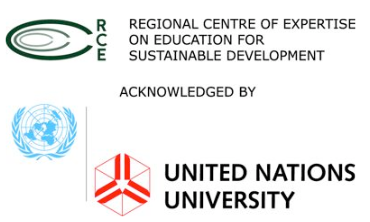
RCE Bulletin
Dear Colleagues and Friends,
Greetings from the Global RCE Service Centre and a Happy New Year to all!
We hope you all had a wonderful holiday season and are refreshed for the year ahead! We begin the year with some exciting news, announcing six new RCEs who have joined the Global RCE Network! Take a look below for more details.
In addition, 2020 is gearing up to be an important year for our network, with the launch of the new framework 'ESD for 2030' in June, as well as the 12th Global RCE Conference at the end of this year. Speaking of events, applications to host either the Global RCE Conference or Regional RCE meetings are still open, however they close at the end of this month. See below for details.
As always, we would love to hear from your RCE - if you have any news, upcoming events, open calls, or publications you wish to submit to an upcoming bulletin, please complete this form and email your submission to the Global RCE Service Centre at rceservicecentre@unu.edu (submissions close on the 15th of each month).
Sincerely,
The Global RCE Service Centre
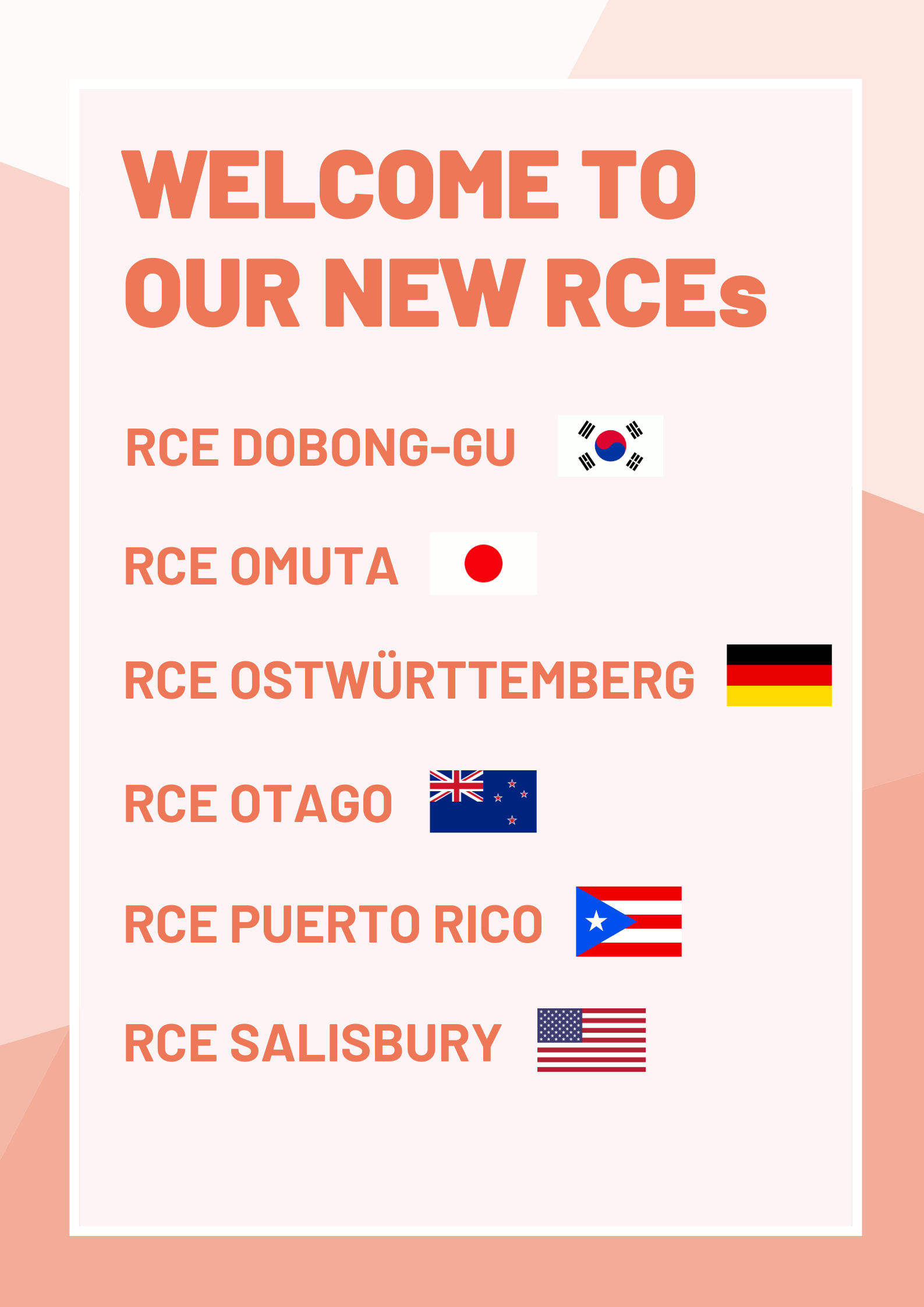
The Global RCE Service Centre is delighted to announce six new RCEs joining the network, who were acknowledged at the Ubuntu Committee of Peers for the RCEs meeting held last month in Tokyo, Japan, from 5-6 December, 2019. Please join us in extending a warm welcome to the new members of the RCE family:
- RCE Dobong-gu (Republic of Korea)
- RCE Omuta (Japan)
- RCE Ostwurttemberg (Germany)
- RCE Otago (New Zealand)
- RCE Puerto Rico (Puerto Rico)
- RCE Salisbury (USA)
Globally, the RCE Network now consists of 174 RCEs. The updated list (including profiles) of RCEs worldwide can be viewed here.
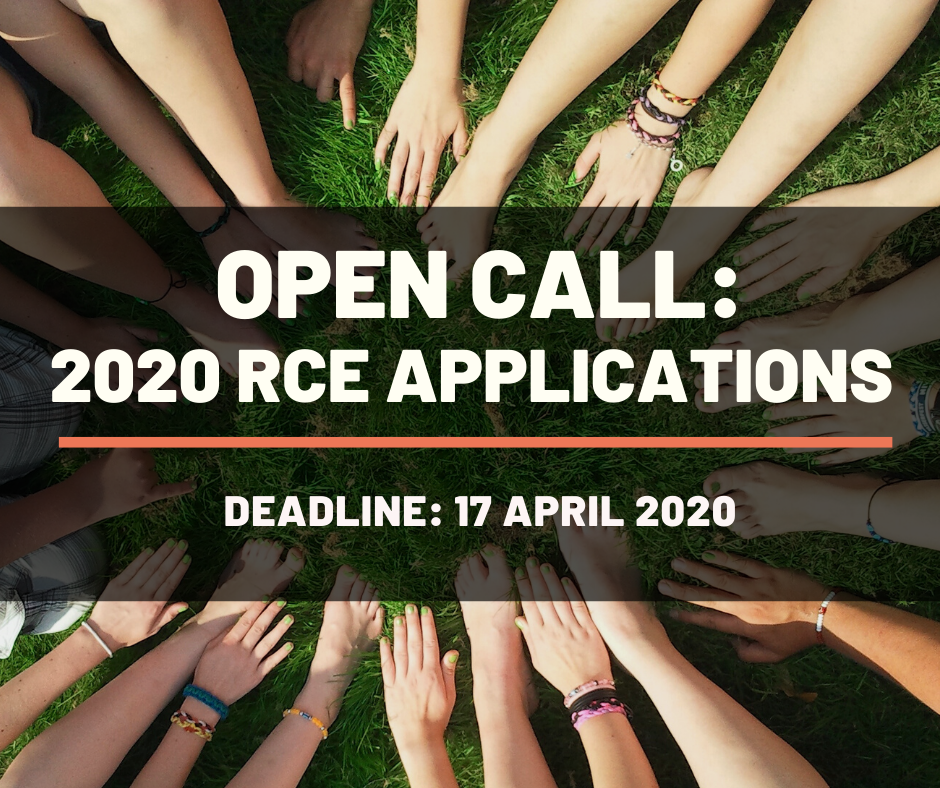
Is your organisation interested in facilitating learning towards sustainable development in your local or regional community? The Global RCE Service Centre is currently accepting applications for 2020 - apply now to become an RCE!
Before applying, please take time to review the Guidelines for RCE Applications and key dates in the application process, announced in the open call here. Sample applications are also available from RCE Greater Portland and RCE Bordeaux Aquitaine.
To apply, please submit an application and an application summary to the Global RCE Service Centre (rceservicecentre@unu.edu) by 17 April, 2020 (11:59pm JST).
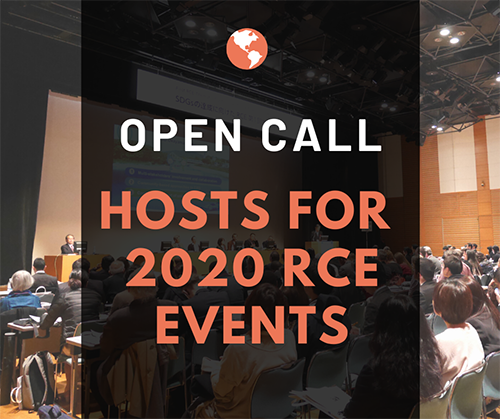
The Global RCE Service Centre is currently accepting applications to host the following RCE events in 2020:
- 13th Asia-Pacific Regional Meeting
- 10th African Regional Meeting
- Europe Regional Meeting 2020
- 9th Americas Regional Meeting
- 12th Global RCE Conference
RCEs interested in hosting either a regional meeting or the Global RCE Conference are encouraged to apply. To find out more about the process, view the open call here. Applications close soon, on Friday 31 January, 2020.
Upcoming Events
1-2 February, 2020, Kobe, Japan
Hosted by RCE Hyogo-Kobe, the annual Japanese RCE Working Level Meeting will be held in Kobe, Japan early next month, and will be attended by seven Japanese RCEs, to discuss the development of the network as well as the promotion of their activities. The meeting will be followed by the Japanese RCE Youth Meeting at the same location, organised by RCE Hyogo-Kobe and UNU-IAS, which will feature a number of discussions and workshops aimed at developing the youth network in Japan. Stay tuned for a report of the meetings, to be published in an upcoming bulletin.
Open Calls
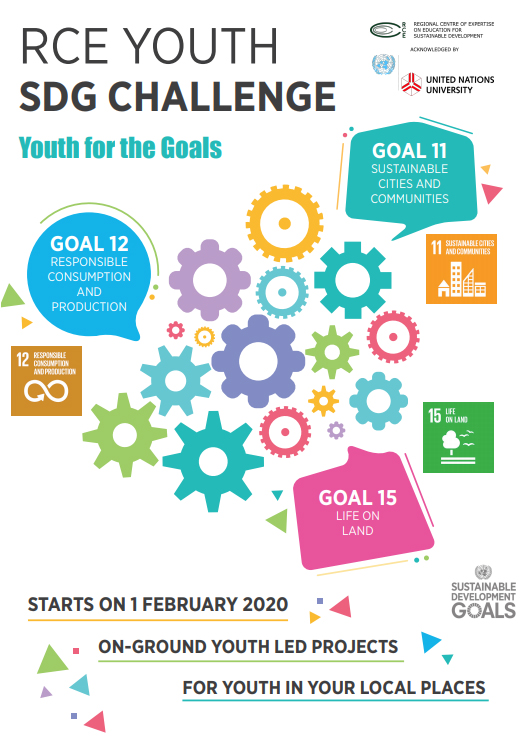
The RCE Youth SDG Challenge 'Youth for the Goals' was launched in 2018 and is open to all youth globally. Led by the RCE Asia-Pacific Regional Youth Leaders (from RCE Greater Western Sydney and RCE Yogyakarta) via the Global RCE Network, this year's challenge is focusing on SDG 11: Sustainable Cities and Communities, SDG 12: Responsible Consumption and Production, and SDG 15: Life on Land.
Projects from any RCEs are welcome, as long as they are in line with the Challenge theme and underpinned by education in some way (SDG 4). Projects must be led by a youth lead (35 years or younger), can be delivered by an individual, a team (doesn't have to be youth exclusively) or partnering RCEs who are committed to the project and providing regular project updates from February - October 2020. RCEs are asked to offer in-kind support, guidance and mentorship to enable and empower their young people to get involved.
Interested participants are asked to submit a short project plan online by 31 January, 2020 here.
Thus far, the SDG Youth Challenge has engaged directly with 13,500 youth and 5,000 community members through 39 individual youth-led sustainability projects across nine countries. Download the final 'Youth for the Goals 2019: Social Equality' report to learn more.
UNESCO's Futures of Education initiative aims to rethink education and shape the future. The initiative is catalysing a global debate on how knowledge, education and learning need to be reimagined in a world of increasing complexity, uncertainty, and precarity. It relies on a broad, open consultative process that involves youth, educators, civil society, governments, business and other stakeholders. UNESCO is welcoming active participation through the following online engagement channels:
- Survey - Top 3 Challenges and Purposes of Education: A 3-minute online survey to offer views on the top three development challenges ahead in the future, and the top three ways education can address them.
- Submit artwork - Your Vision of Education in 2050: This platform invites people to share their original creative, artistic visions of what education might look like in 2050.
- Written contributions - Your View on the Futures of Education: This platform invites people to present their thoughts on what they see as the one major issue for the futures of education.
Find out more about the initiative here.
This 4-week course offered by APCEIU's GCED Online Campus seeks to provide learners to understand the terms, concepts and background knowledge of climate change, as well as the global efforts and international agendas that are taking place to address the issue. Through these activities, learners will deepen their knowledge and enhance their competencies to cope with climate change, reaffirming their commitment as global citizens. In addition to delivering an introduction on climate change, the course covers sessions on anthropogenic drivers and societal and environmental implications of climate change, as well as international efforts. Read more
UNU-IAS is now accepting applications for September 2020 admission to its postgraduate degree programmes: the Master of Science in Sustainability and the PhD in Sustainability Science. Both programmes aim to produce the policymakers and researchers of tomorrow, who will be at the forefront of global efforts towards a more sustainable future. The application deadlines are 28 February, 2020 for the master's programme, and 10 April, 2020 for the doctoral programme. Read more
UNU-IAS is now accepting applications for the JSPS-UNU Postdoctoral Fellowship programme for 2020. Jointly organised by UNU-IAS and the Japan Society for the Promotion of Science (JSPS), the programme provides promising, highly qualified, young researchers with the opportunity to conduct advanced research relevant to the main thematic focus areas of the institute (Education for Sustainable Development is one of the specific areas of the Programme). The application deadline for the JSPS-UNU Postdoctoral Fellowship programme is 21 February 2020. Read more
Peace Pals International has joined in partnership with its sister organisation, the Goi Peace Foundation of Japan, in a special art exhibition and awards for 2019/2020, under the theme of 'Sports and Peace'. Youth from around the world, aged 5-16 are invited to submit their artwork, giving thought as to what peace means to them and how sports can influence peace. Submissions close on 15 February, 2020. Further details can be found here.
Latest News
ESD BOOKS, PUBLICATIONS AND OTHER
A new website, 'Integrating ESD in Teacher Education in South-East Asia' by the Southeast Asia Teacher Educators' Network (SEA-ESD Network) and launched by UNESCO Bangkok, aims to serve as a guide and a platform to share information on integrating ESD in teacher education. The online guide takes readers through a step-by-step action research approach to integrate ESD in teacher education programmes and practices, and features stories shared by the SEA-ESD Network members, learning activities, teaching and learning tools, and reading resources. Users can read news from the network members, and also submit content in order to enrich the website. Take a look at the website here.
Quantifying progress towards achieving the SDGs is essential to track global efforts towards sustainable development and guide policy development and implementation. However, systematic methods for assessing spatio-temporal progress towards achieving the SDGs are lacking.
Featured in Nature this month, this paper presents systematic methods to quantify progress towards the 17 SDGs at national and subnational levels in China, with the analyses indicating the scores of 13 of the 17 SDGs improved over time at the national level, whilst the scores of four SDGs declined. There were also large spatio-temporal variations across regions. The study suggests the need to track the spatio-temporal dynamics of progress towards SDGs at the global level and in other nations. Read more
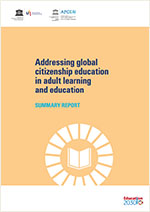
This report, published by the UNESCO Institute for Lifelong Learning (UIL) in partnership with the Asia-Pacific Centre of Education for International Understanding (APCEIU), looks at the developments, gaps and challenges that can be identified with respect to Global Citizenship Education (GCED) in adult learning and education (ALE), and highlights examples of best practices in this field. It underlines the role of ALE and GCED in realising the 2030 Sustainable Development Agenda, and examines the role of the adult educator in GCED. It closes by proposing ways in which the mainstreaming of GCED in ALE can be further developed and improved. Download the report here.


